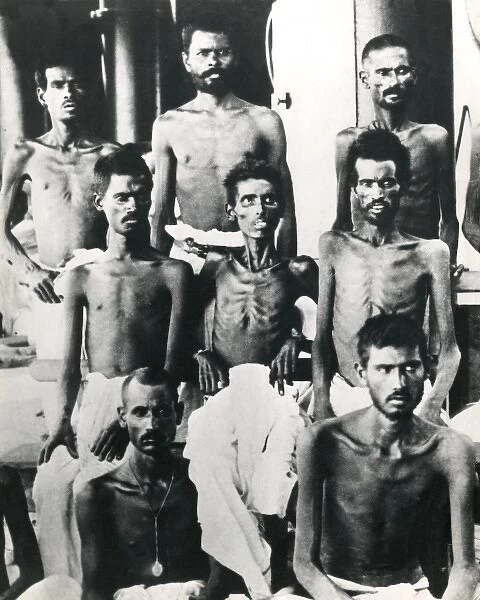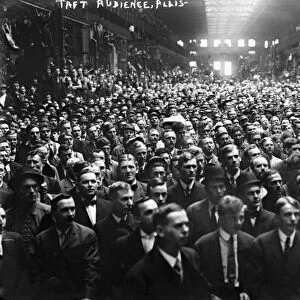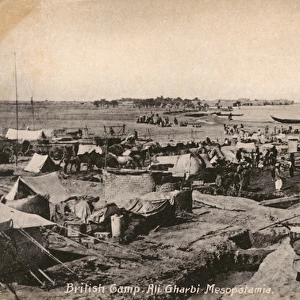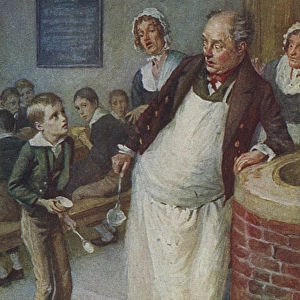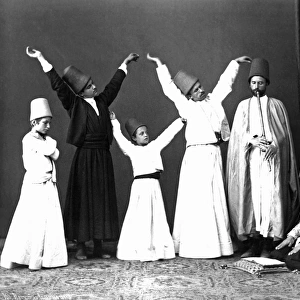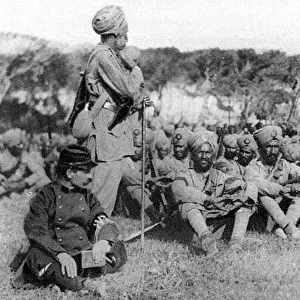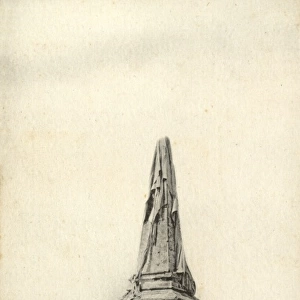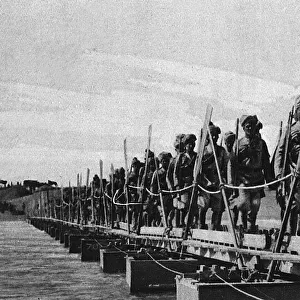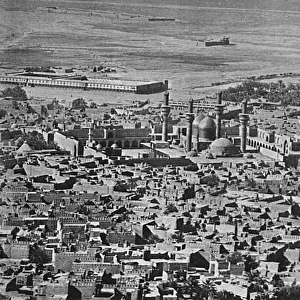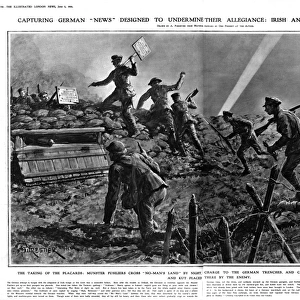Home > Asia > Iraq > Kut
Indian soldiers after the Siege of Kut, WW1
![]()

Wall Art and Photo Gifts from Mary Evans Picture Library
Indian soldiers after the Siege of Kut, WW1
Indian soldiers in an emaciated condition after the Siege of Kut (1916), Mesopotamia (now Iraq), during the First World War. Date: circa 1916
Mary Evans Picture Library makes available wonderful images created for people to enjoy over the centuries
Media ID 7193833
© Mary Evans Picture Library 2015 - https://copyrighthub.org/s0/hub1/creation/maryevans/MaryEvansPictureID/10536873
Allied Condition Defeat Defeated Iraq Mesopotamia Siege Thin Emaciated Starved War Time Ww 1
FEATURES IN THESE COLLECTIONS
> Historic
> World War I and II
> Soldiers
EDITORS COMMENTS
This poignant photograph captures the harsh realities of the Siege of Kut during the First World War, as Indian soldiers, part of the Allied forces, endure the aftermath of their defeated army in Mesopotamia, now modern-day Iraq. Circa 1916, the image portrays the emaciated and weakened condition of these brave soldiers, a stark reminder of the hardships they faced during the prolonged siege. The Siege of Kut, which lasted from December 1915 to April 1916, was a significant turning point in the Middle Eastern theatre of the Great War. The Allied forces, led by British General Townshend, were initially successful in advancing towards Baghdad but were later encircled and besieged by the Ottoman Turkish army. The siege resulted in the surrender of over 12,000 Allied soldiers, including thousands of Indian troops. The conditions inside the encircled camp were dire, with limited food and water supplies. The soldiers were forced to subsist on meager rations, and many succumbed to disease and starvation. The photograph highlights the devastating impact of the siege on the Indian soldiers, who were among the most affected due to their already precarious living conditions and their role as laborers and support troops. Despite the hardships, the Indian soldiers continued to hold on to their morale and hope for rescue. The image serves as a poignant reminder of their resilience and the sacrifices they made during the war. The Siege of Kut marked a significant defeat for the Allied forces but also underscored the crucial role of Indian soldiers in the British army during the First World War.
MADE IN AUSTRALIA
Safe Shipping with 30 Day Money Back Guarantee
FREE PERSONALISATION*
We are proud to offer a range of customisation features including Personalised Captions, Color Filters and Picture Zoom Tools
SECURE PAYMENTS
We happily accept a wide range of payment options so you can pay for the things you need in the way that is most convenient for you
* Options may vary by product and licensing agreement. Zoomed Pictures can be adjusted in the Cart.

